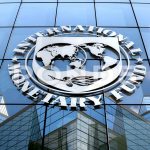As the budget-making exercise is coming to a close, the government appears to be facing a tough challenge to finalize the budgetary targets. The IMF terms are a hard nut to crack, and the government is bound to consult the IMF, which is hinting at slapping additional taxes to the tune of Rs500 billion in the upcoming budget. The IMF is not keen on increasing salaries of government employees whereas the government is under tremendous pressure to give a much-needed raise to its staff which is facing the brunt of surging inflation. Another issue is the setting of targets which the government tends to overestimate and ultimately ends up reducing them or asserting achievements that are questionable, and independent economists challenge and dispute them. This time again the government is planning to envisage a GDP growth target of 5 percent which appears to be a bit overstretched. The same applies to the target for inflation which the government is projecting to be around 8 percent, but many economists are raising doubts about that too.
The next fiscal will be a challenge for at least two reasons: one, the FBR targets that the IMF wants to set at around Rs6 trillion will require stringent measures from the FBR to extract taxes from the businesses, industry, and the general public. The government must develop a consensus on these targets; wide consultations to take all stakeholders on board are needed so that business and industry does not come under strain. They are already reeling under high power tariffs which have rendered them uncompetitive in the international market where cheaper products are available from countries with lower power rates. The second challenge is the budget deficit target which has been jacked up to 6.3 percent in the revised Budget Strategy Paper which is slightly higher than the target set earlier. The government is also eyeing one percent through the provincial revenue surplus. In addition, a gift scheme is reported to be on the cards to lure taxpayers to pay GST in full. It is strange that the general sales tax which is applicable to nearly all products that people buy will be the focus of a gift scheme.
Ultimately, GST affects the public irrespective of their socioeconomic status and, with higher inflation, the GST in Pakistan is hitting the people hard. The government should focus more on broadening the tax net to target those who earn a lot and get tax exemptions — just like the government has recently done to encourage the real-estate sector. It is a no-brainer that the property sector does not help us in improving our exports, which are so vital for any economy under duress such as Pakistan. The claim that the government managed to achieve a 3.94 percent GDP growth rate in the outgoing fiscal year is being questioned by not only the opposition but also by independent economists and researchers. While the third wave of the Covid-19 pandemic is still raging, any more measures that may result in high inflation must be resisted even if they come from the IMF. It is true that financial discipline is key but if such discipline results in more hardships for the people of Pakistan, the government needs to find a way around the terms.






